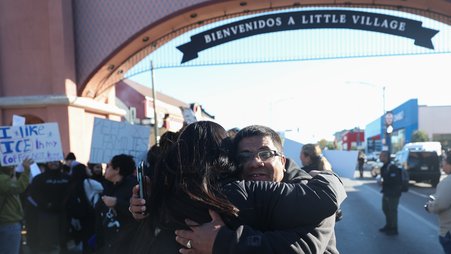House Intelligence Committee chairman Rep. Mike Rogers (R-MI) accused a group of journalists of committing a crime yesterday, falsely stating at a committee hearing that NSA reporters are “selling” the leaked Snowden documents and are breaking the law.
Mike Rogers indicated in an interview afterwards that he was referring to Glenn Greenwald, who has entered into standard freelance contracts with news organizations to report various stories related to the NSA. But his comments apply equally to Barton Gellman, who is not a Washington Post employee yet publishes NSA stories there, presumably on a contract basis. It also potentially applies to any media organization who is selling copies of its paper or ads based on their reporting on the NSA documents, which includes the New York Times.
Greenwald later told the Guardian he has “never, never, ever” sold the documents themselves to anyone and “Mike Rogers is literally just fabricating and lying when he says that.”
While Mike Rogers has a long history of fabrications, this is just the latest in a disturbing pattern of top intelligence officials suggesting we should the First Amendment should not apply to journalists reporting on the NSA.
Just last week, Director of National Intelligence James Clapper strongly insinuated all the NSA journalists “accomplices” to a crime merely because they possessed the Snowden documents and continued to publish stories based on their contents. (Again, this does not just apply to Greenwald, but dozens of reporters and editors at Washington Post, New York Times, Guardian, ProPublica, and NBC News.)
In October, NSA chief Keith Alexander also bizarrely said journalists were selling these documents (again with no proof). He then suggested that policy makers should circumvent the First Amendment to stop further reporting:
"I think it’s wrong that that newspaper reporters have all these documents, the 50,000—whatever they have and are selling them and giving them out as if these—you know it just doesn’t make sense. We ought to come up with a way of stopping it. I don’t know how to do that. That’s more of the courts and the policymakers but, from my perspective, it’s wrong to allow this to go on."
Then, in an off-the-record discussion with reporters at NSA headquarters in Ft. Meade Maryland, Foreign Policy’s Daniel Drezner reported that an official told him he “hoped that the Obama administration would crack down on these reporters, saying, ‘I have some reforms for the First Amendment.’” Drezner continued, “I honestly do not know whether that last statement was a joke or not. Either way, it's not funny.”
So far the Justice Department and the FBI have refrained from engaging in the same type of chilling fear-mongering. FBI Director James Comey refused to answer Rogers’ reporters-are-criminals hypothetical at the hearing yesterday, and Attorney General recently said he wouldn't prosecute any reporters doing their job. However, both should be actively condemning these comments, as they are an attempt to “target members of the press or discourage them from carrying out their vital work,” which Holder explicitly said the government would not do.
But this also bring up a larger question: if the entire intelligence community thinks these reporters are either committing a crime or are an accomplice to one, are they attempting to use this as a justification to target them with surveillance? This is the question the press should now be asking since we know it’s not just a fluke that intelligence officials are trying to paint journalists doing their job as criminals.




